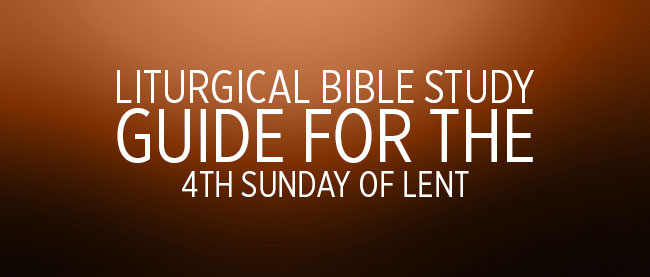1st Reading – Joshua 5:9a, 10-12
The common theme for all three readings of this Mass is “reconciliation.”
The book of Joshua is the first of the historical books, immediately following the Torah in the Bible. Today we will add another chapter to the story of the Israelites. Moses has died; Joshua is the new leader. The people have crossed the Jordan River on dry land (Joshua 3:15-17), reminiscent of their escape from Egypt through the Reed Sea. At God’s command, Joshua has appointed twelve men, one from each tribe of Israel to each take up a stone from the middle of the (dry for the crossing) Jordan. These stones have been set up as a memorial of their crossing on dry ground.
“In the future, when the children among you ask their fathers what the stones mean, you shall inform them, ‘Israel crossed the Jordan here on dry ground.’ For the Lord, your God, dried up the waters of the Jordan in front of you until you crossed over, just as the Lord, your God, had done at the Red Sea, which He dried up in front of us until we crossed over; in order that all the peoples of the earth may learn that the hand of the Lord is mighty, and that you may fear the Lord, your God, forever.” (Joshua 4:21-24)
Circumcisions were then performed as none had been done on those who had been born during the 40 year sojourn in the desert (Joshua 5:4-5). This now brings us to today’s reading and the celebration of the Passover in the Promised Land.
2nd Reading – 2 Corinthians 5:17-21
In our first reading we heard about how the Israelites, once they had reached the promised land, reconciled themselves with God by circumcising and celebrating the Passover and Feast of Unleavened Bread. In today’s epistle reading St. Paul spells out the
process whereby God’s saving love touches human lives.
Gospel – Luke 15:1-3, 11-32
Our gospel reading today is the parable of the prodigal son; perhaps it should be renamed the parable of the loving father because he is really the star of the story. This parable is found only in Luke’s gospel. The parable plays upon the hearer’s knowledge of two brothers stories, in which the younger triumphs over the elder: 1) Esau and Jacob (Genesis 25:27-34; 27:1-36) and Joseph and his brothers (Genesis 37:1-4). Jesus doubly reverses expectations: the prodigal son is a parody of the successful younger brother; the
elder son is not vanquished, but invited to the feast.
You can also use this guide by Fr. Cielo Almazan


